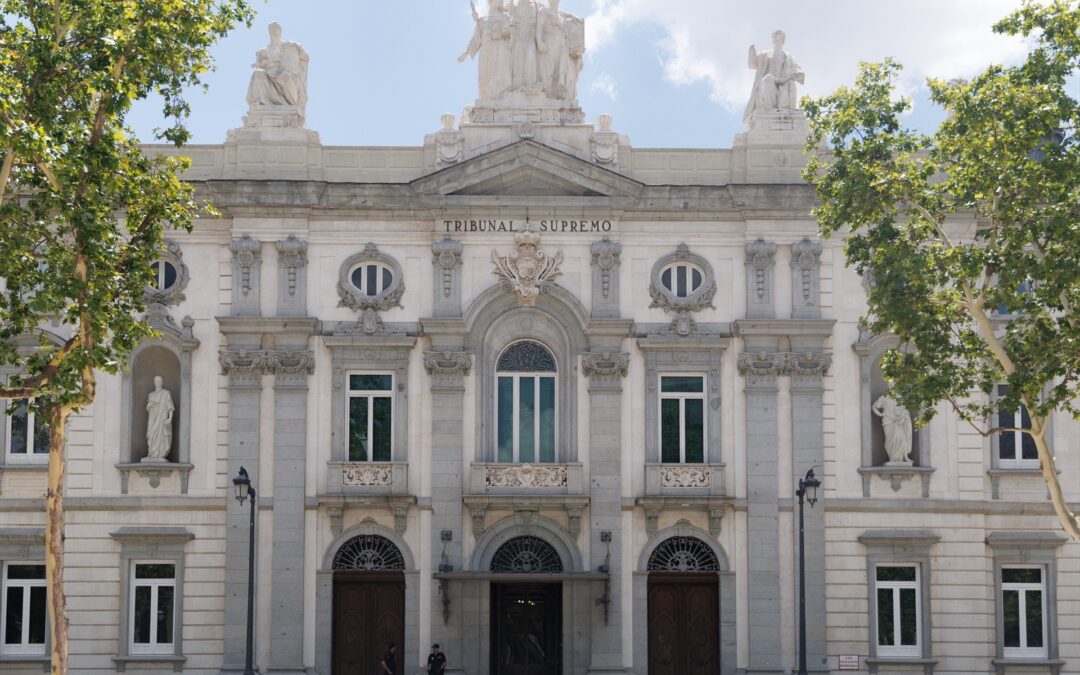Brussels/Madrid – 50% of Spaniards have a “bad” or “very bad” impression of the independence of their country’s judicial system, placing Spain sixth from the bottom in the ranking of the 27 countries of the European Union.
The Eurobarometer published on Tuesday by the European Commission reveals that only respondents in Croatia, Bulgaria, Poland, Slovenia, and Italy express a worse average opinion regarding the independence of the judiciary in their State.
When Europeans are asked about their perception of the independence of judges and courts in the EU country in which they reside, 52% claim to have a “good” or very good opinion. In the case of Spain, only 30% give a “good” rating to judicial independence, and barely 7% a “very good” rating.
Among the group of Spaniards who have a poor opinion of the state of justice, 67% point to pressures or interferences in the system from politicians and the Government, a figure that exceeds the European average (51%).
Similarly, 51% of Spaniards and 40% of Europeans point to pressures from economic powers and other interests, while 31% of Spaniards and 25% of Europeans believe that the status and position of judges do not sufficiently guarantee their independence.
According to the Eurobarometer, in Spain, the perception of companies regarding judicial independence is similar to that of the public. Thus, 7% of surveyed companies claim to have a “very good” opinion and 25% a “good” opinion of the situation in Spain, compared to the European average of 10% and 40% expressing the same opinion.
According to the Government of Spain, the Eurobarometer shows that from the Executive and the parliamentary majority “the highest standards of respect for judicial independence are upheld,” but it indicates that “these efforts are overshadowed by the blockage of the renewal of the General Council of the Judiciary (CGPJ).”
The renewal of the CGPJ, the highest governing body of Spanish judges, has been blocked for more than five years, due to the inability of the two major parties to reach an agreement. In this latest stage, the Belgian liberal Didier Reynders took on the task of mediating between the PP and the PSOE, but Brussels’ mediation has yet to yield results.
Additionally, the Government emphasizes that institutionally and legislatively, Spain leads in anti-corruption guarantees within the Judiciary. “Our country belongs to the group of 7 countries that meet all material anti-corruption measures and the 12 countries that score the highest in transparency, verification, and sanctions,” government sources claim.
Specifically, the President of the Government of Spain, Pedro Sánchez, committed this Wednesday before the Congress of Deputies to present a package of measures to improve the country’s “democratic quality” “before the end of the summer,” as he promised in April.
After denouncing a campaign of harassment against him and his family that led him to reflect on his continuation in office, Sánchez announced in April the launch of a regeneration package. He did not specify the concrete proposals but pointed to the need for greater transparency regarding media ownership and the renewal of the CGPJ.
This same Wednesday, Sánchez also gave the PP an ultimatum to agree to renew this body before the end of June. Otherwise, he said, he will change the governing body’s power to make appointments to the Supreme Court and the Superior Courts of Justice.
The head of the Executive considers that this ability to continue making appointments is a “perverse incentive” that makes the PP unwilling to agree on the renewal of the members with the Government, which has had an expired mandate for more than five years.
 go to the original language article
go to the original language article
